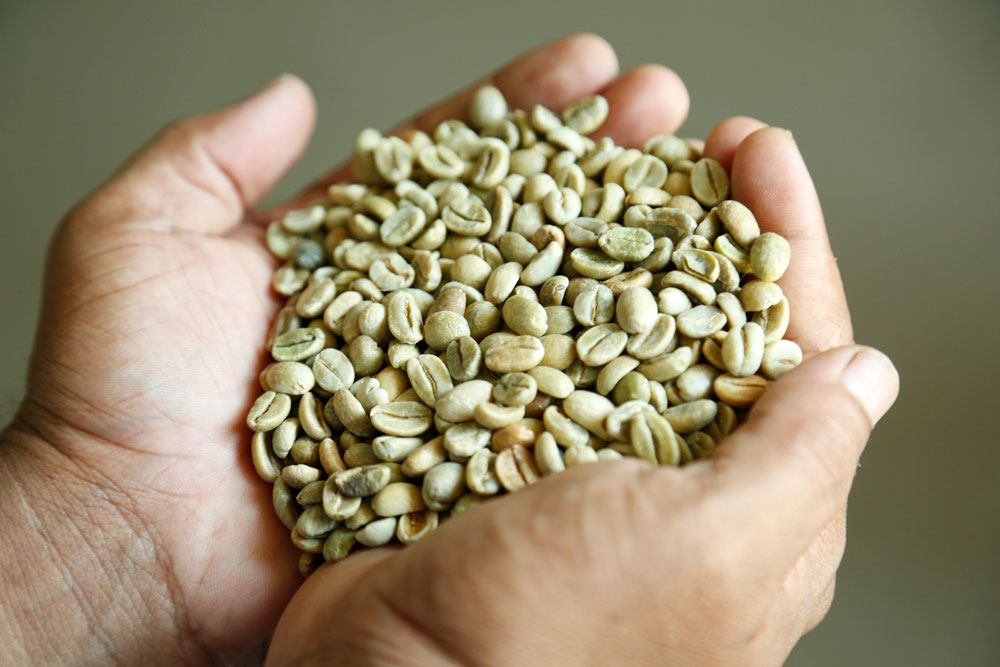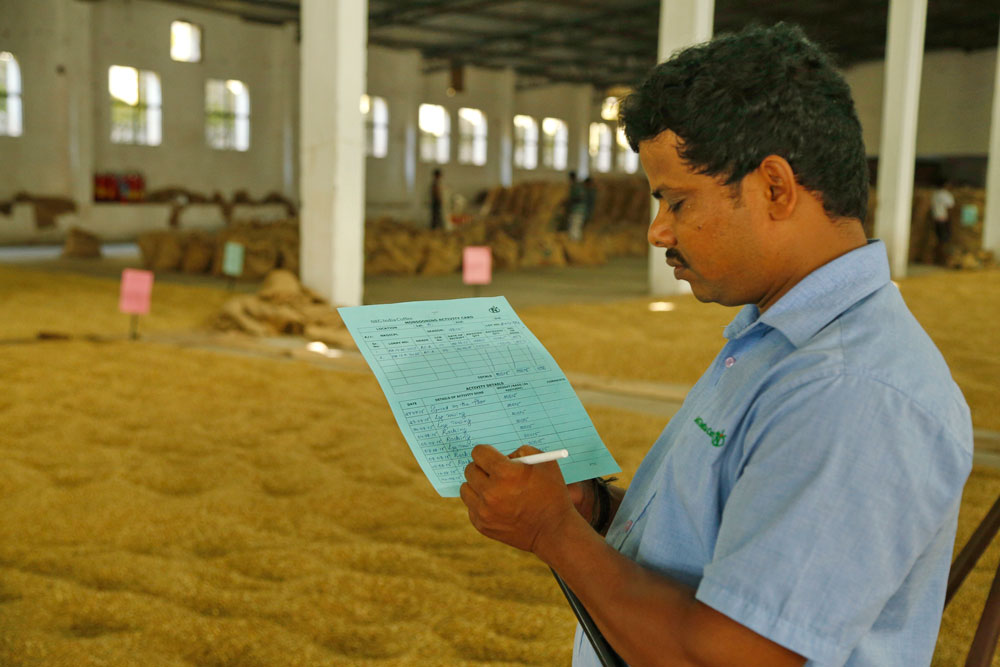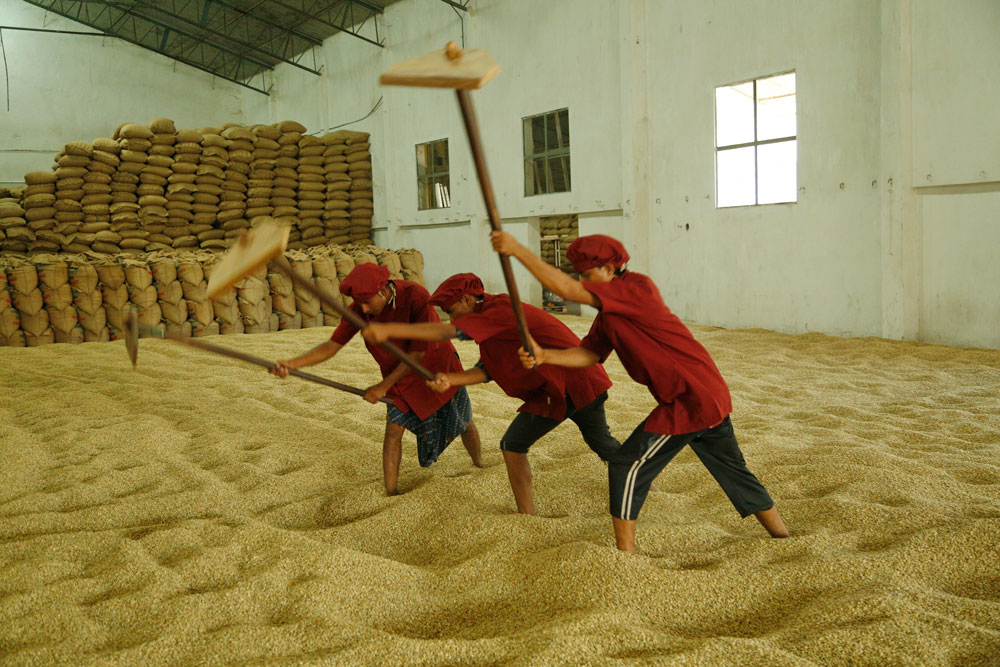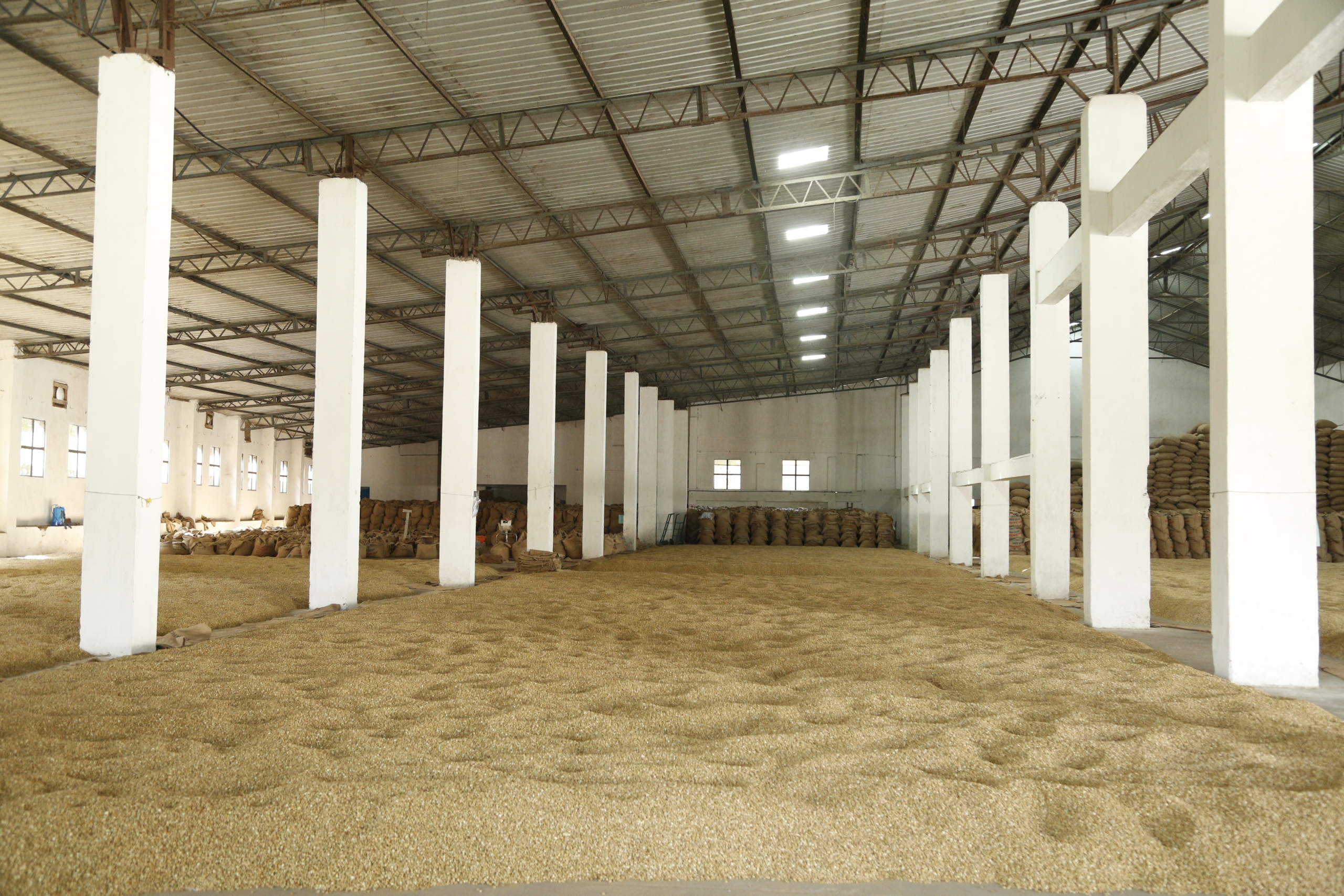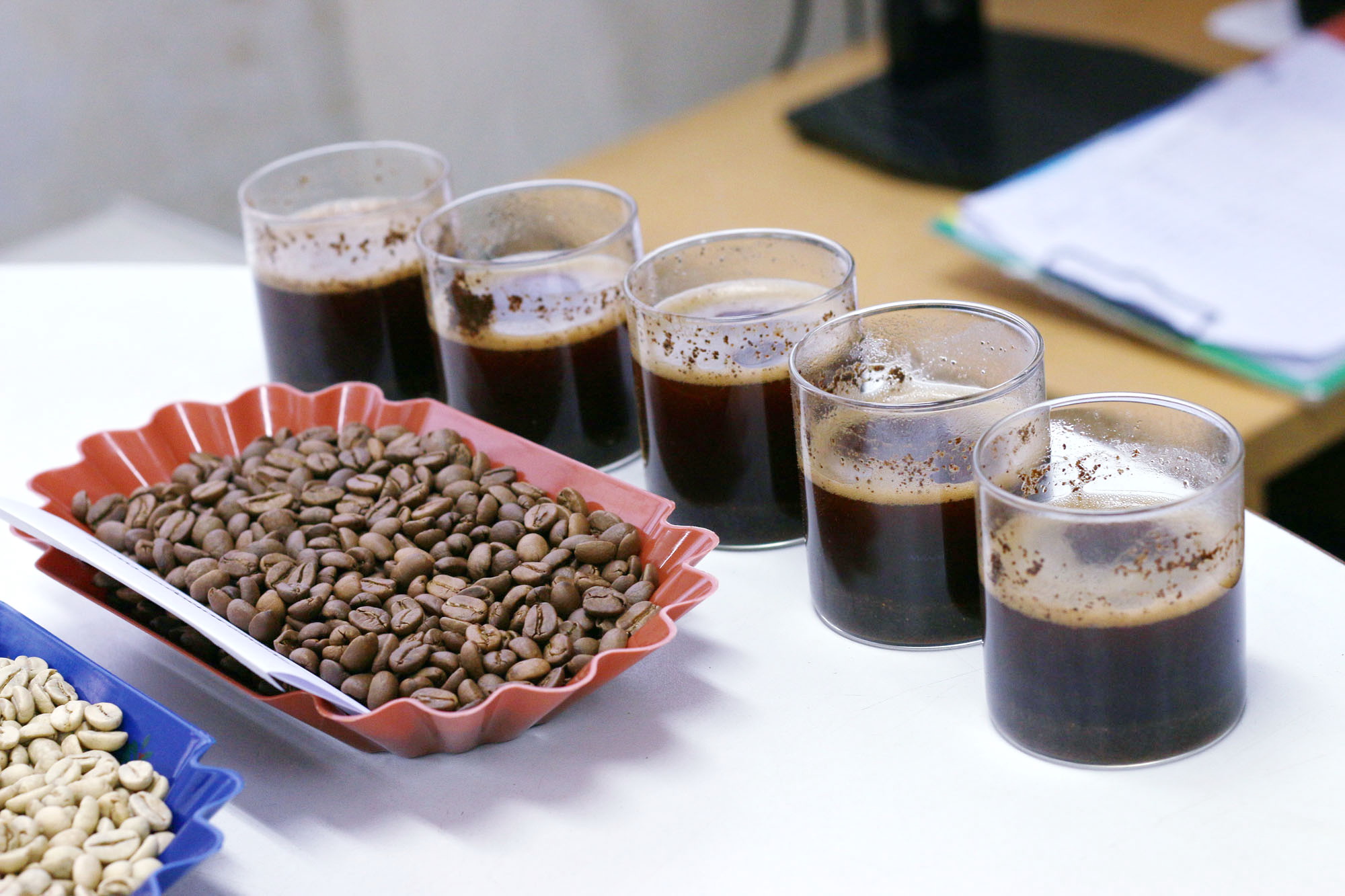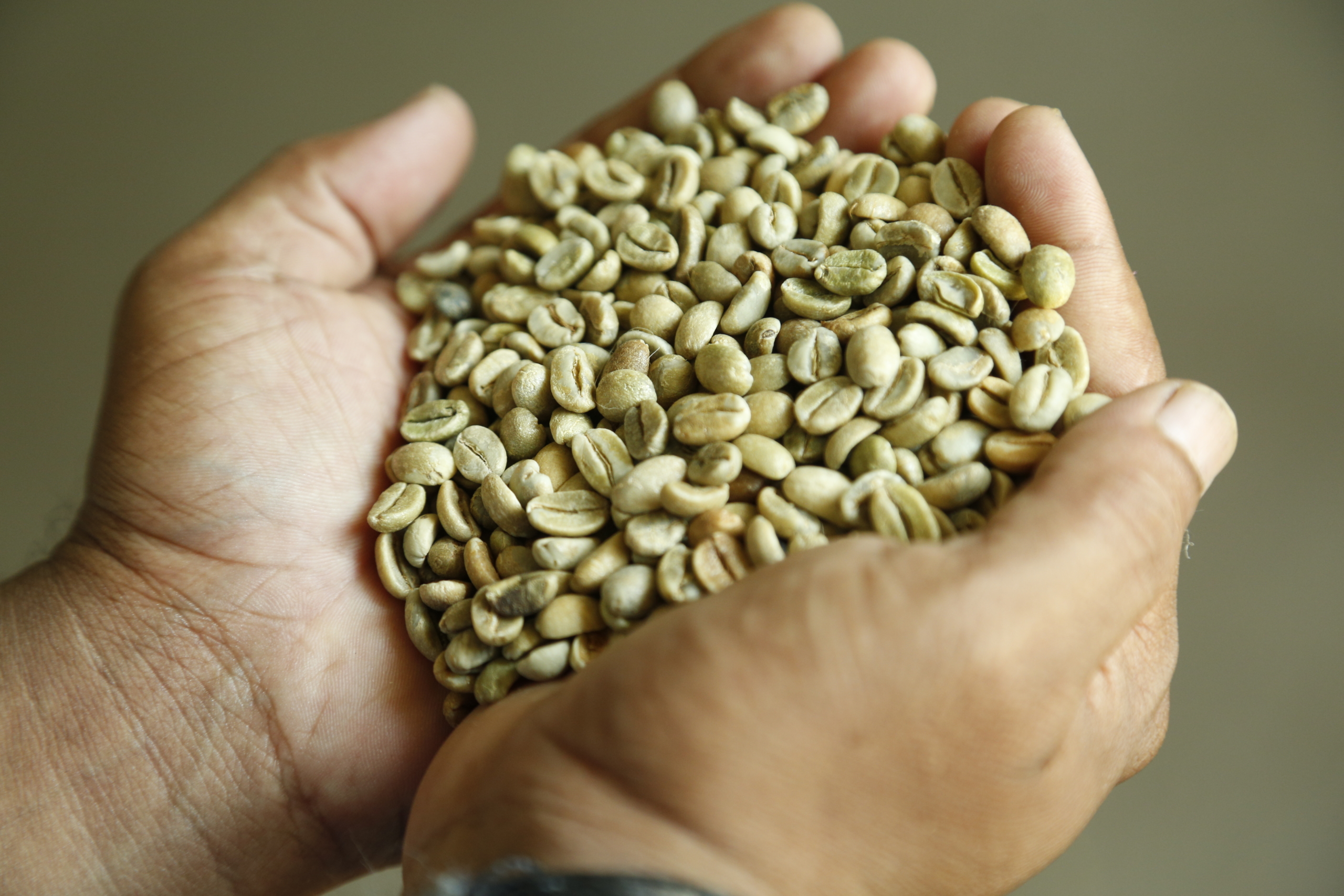Monsooned Malabar Coffee
A Unique Specialty from India
Monsooned Malabar Coffee
A Unique Specialty from India
Monsooned Malabar coffee is a unique and highly sought-after specialty coffee variety from India. Known for its distinct flavor profile and rich history, Monsooned Malabar coffee has gained a significant role in the Indian coffee industry. This coffee gets its unique characteristics from the Monsooning process, where the beans are exposed to the coastal climate and monsoon winds, resulting in a low acidity, mellow taste, spicy, caramel sweetness, chocolate and nuts. With its exceptional taste and global demand, Monsooned Malabar coffee has gained recognition as a premium and exotic coffee choice for coffee enthusiasts worldwide.
Our special well-ventilated processing facility is set up in Mangalore to produce Monsooned Malabar from prime grades of both Arabica and Robusta.In our coastal establishment in Mangalore we produce Monsooned Malabar from prime grades of both Arabica and Robusta.
Cup Profile:
Monsoon Arabica AA – Low in acidity, mellow taste, creamy body, spicy, caramel sweetness, chocolate and nuts.
Monsoon Robusta – Low acid varietal, exceptionally smooth, full body, pleasant earthy flavour but without taste of an aged coffee.
Read on to learn more about the Monsooning Process and the history of Monsooned Malabar.
The Monsooning process
Prime grades of both Arabica and Robusta are subject to specialized processes under controlled conditions at our coastal establishment in Mangalore. The coffee is stored in special warehouses from June through September. Southwest Monsoons bring favourable wind temperatures and humidity for processing the coffee ideally.
As the coffee is exposed to atmospheric conditions, it undergoes some biological and chemical changes: The coffee bloats to almost twice its size, it changes its texture and colour to pale gold and acquires a unique flavour and quality.
Mechanical polishing ensures that the coffee is free of silver skin and adds lustre to the beans at the same time; Coffee is then mechanically graded to achieve desired size, gravity separated to extract light beans and finally sorted electronically to achieve the Monsooned Coffee grades as per specifications.
Prime grades of both Arabica and Robusta are subject to specialized processes under controlled conditions at our coastal establishment in Mangalore. The coffee is stored in special warehouses from June through September. Southwest Monsoons bring favourable wind temperatures and humidity for processing the coffee ideally.
As the coffee is exposed to atmospheric conditions, it undergoes some biological and chemical changes: The coffee bloats to almost twice its size, it changes its texture and colour to pale gold and acquires a unique flavour and quality.
Mechanical polishing ensures that the coffee is free of silver skin and adds lustre to the beans at the same time; Coffee is then mechanically graded to achieve desired size, gravity separated to extract light beans and finally sorted electronically to achieve the Monsooned Coffee grades as per specifications.
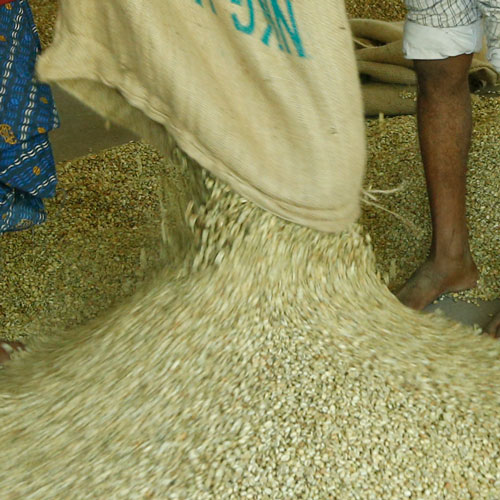
1. Green coffee beans for Monsooning
Cleaned and color sorted prime grades (+18) Arabica and Robusta green coffee beans with a moisture level of 12% from the NKG India Hassan Mill are transported to our Monsooning facilities in Mangalore.
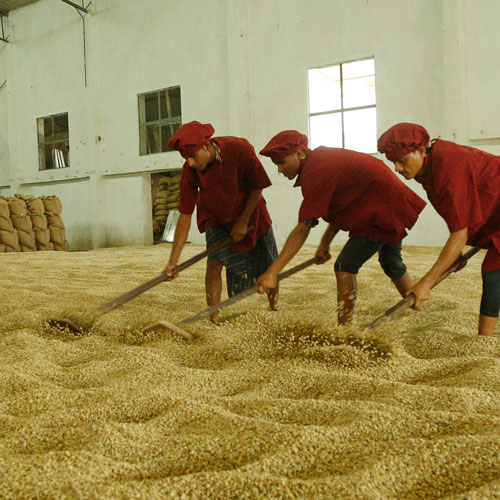
2. Spreading the coffee beans
During the monsoon season (June – October) the coffee beans are spread on the floor in a layer of 4 to 5 inch thickness to absorb moisture-laden winds from the Arabian Sea.
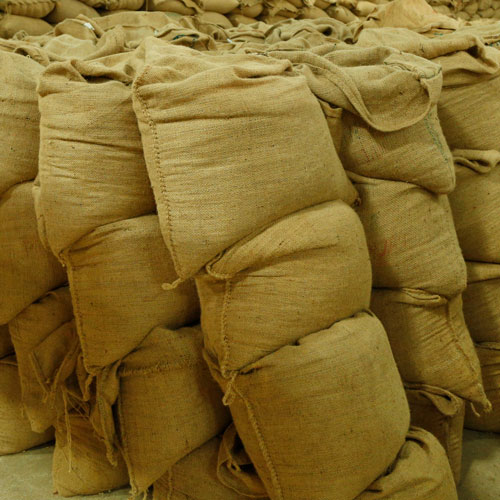
3. Further maturation
The coffee is half-bagged after reaching moisture levels of 15% to 16% and a sufficient bloating, which typically takes 15-25 days depending on humidity. It is then re-bagged at regular intervals to prevent mold formation during the monsoon season.
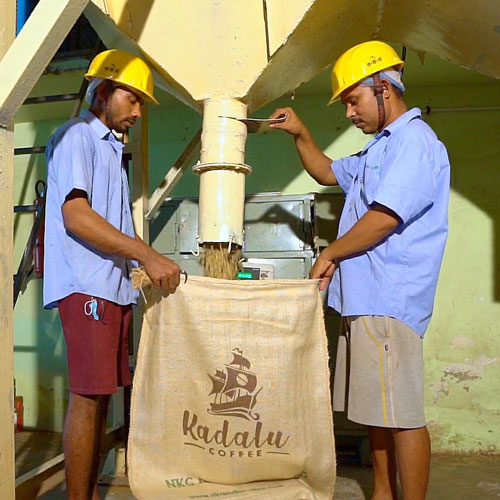
4. Final Processing
Once the rain has subsided and the humidity has decreased, processing begins in October. The moisture content at this time is 13% to 14%. The finished Monsooned Malabar coffee is polished to remove the silver skin, sorted and separated by gravity to remove broken and lighter beans, and finally packed in 50 kg bags for export.
The History of Monsooning
Historically, coffee was shipped to Europe in wooden sailing vessels that took four to six months to sail around the Cape of Good Hope and up to their destinations. Stored below the water line and kept in an atmosphere made humid by seawater seeping through the wood, the beans underwent a transformation on their long journey to market. The bright-green beans would arrive pale gold, doubled in size, and with an entirely new cup profile. This unique process, known as “Monsooning,” was later systematically replicated in India to meet the demands of European customers who had become accustomed to the distinct cup profile of Indian coffee. By intentionally exposing the beans to the monsoon climate, Indian coffee producers were able to recreate the flavor and aroma that had developed naturally during the long sea voyage. Today, Monsooned Malabar coffee continues to be celebrated for its mellow and distinct taste, a testament to the historical journey of coffee beans across the Arabian Sea.
Historically, coffee was shipped to Europe in wooden sailing vessels that took four to six months to sail around the Cape of Good Hope and up to their destinations. Stored below the water line and kept in an atmosphere made humid by seawater seeping through the wood, the beans underwent a transformation on their long journey to market. The bright-green beans would arrive pale gold, doubled in size, and with an entirely new cup profile. This unique process, known as “Monsooning,” was later systematically replicated in India to meet the demands of European customers who had become accustomed to the distinct cup profile of Indian coffee. By intentionally exposing the beans to the monsoon climate, Indian coffee producers were able to recreate the flavor and aroma that had developed naturally during the long sea voyage. Today, Monsooned Malabar coffee continues to be celebrated for its mellow and distinct taste, a testament to the historical journey of coffee beans across the Arabian Sea.
Contact us
Experience the Quality of our Monsooned Malabar
Our Monsooned Malabar is especially prepared for InterAmerican Coffee, Neumann Kaffee Gruppe’s Specialty Coffee Importers. For any inquiries or requests, you can either contact us at NKG India Coffee or your local contact at InterAmerican Coffee resp. Atlas Coffee Importers.
